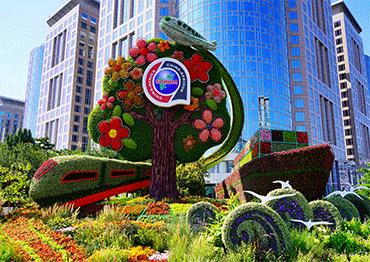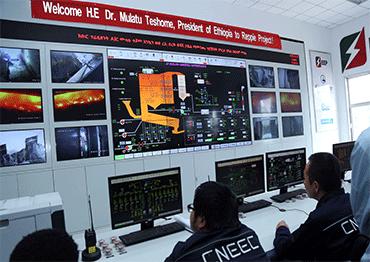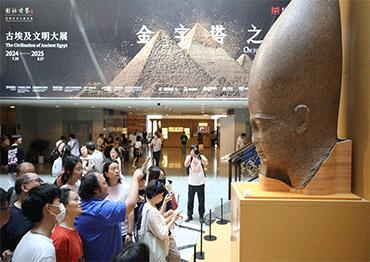China has long maintained close relationships with African countries since the establishment of the People’s Republic of China in 1949. Building on traditional ties, China and Africa launched FOCAC in 2002 with the participation of 44 African countries. Serving as a flagship platform for China-Africa partnership, FOCAC now involves 53 African countries, all countries in the continent except Eswatini, which has yet to establish diplomatic relations with China. The African Union Commission joined the platform as a full member in 2011.
FOCAC gathered heads of state or governments from China and over 40 African countries for the first time in 2006. The conference has taken place every three years, alternating between China and Africa in the following years. The meeting this year is the fourth time the forum has been held as a summit.
In its initial years, the platform mostly focused on promoting trade relations between China and African countries. After the summit in 2006, China started to increase its investment in the continent, developing special economic zones, free trade zones and industrial parks. In 2009, China surpassed the US to become the continent’s largest trade partner and has remained so ever since.
After President Xi Jinping assumed China’s leadership and launched the iconic BRI in 2013, China strengthened its cooperation with African countries in infrastructure building. As of 2023, 52 African countries as well as the African Union have signed a memorandum of understanding with China to jointly build BRI cooperation.
In the 2015 FOCAC meeting held in Johannesburg, China and Africa agreed to build a “comprehensive strategic and cooperative partnership,” elevating the FOCAC framework to a new and comprehensive level to cover a spectrum of issues including finance, environment, health, trade, security, politics and human development. During the period, multiple sub-categories of the China-Africa cooperation mechanisms were established, including forums for people-to-people exchange, youth leaders’ development, health cooperation, media cooperation, poverty alleviation, legal issues and local government cooperation.
During the 2018 FOCAC summit held in Beijing, China and Africa further elevated their partnership “toward an even stronger community with a shared future through win-win cooperation.” Hosting 50 heads of state and governments of 50 African countries, President Xi highlighted the importance of political cooperation and called for African countries to seek alternative development paths that suit their national characteristics. In the meantime, China’s infrastructure investment in Africa evolved from the physical to include digital and technology spheres. In the following years, Chinese companies started to help African countries to lay down cable networks, high-speed broadband access and data storage centers.
According to a press conference by China’s National Development and Reform Commission on August 29, so far Chinese companies had helped African countries build or upgrade more than 10,000 kilometers of railways, nearly 100,000 kilometers of highways, roughly 1,000 bridges, almost 100 ports and 66,000 kilometers of power transmission and distribution lines. Chinese companies also installed electric power capacity of over 120 million kilowatts and laid down more than 150,000 kilometers of communications network cables providing network services to over 700 million users.
Due to the impact of Covid-19, the 2021 FOCAC meeting held in Senegal was relatively low-profile. Nevertheless, the conference marked a new era for China-Africa cooperation. While China gradually shifted away from megaprojects, mostly funded by State-owned enterprises, to “small and beautiful” projects often undertaken by private companies, China deepened its commitment as Africa’s public-goods provider, promising to supply 1 billion doses of Covid vaccines to the continent with 600 million of them provided as donations. China expanded cooperation with Africa to all spheres of strategic interest, including green development. Since 2021, China has participated in the construction of more than 120 African climate projects including low-carbon demonstration zones, wind farms, hydropower stations and photovoltaic power stations.
According to China’s Commerce Ministry, since FOCAC was set up in 2002, China-Africa trade volume has increased from US$10.5 billion in 2000 to US$282.1 billion to date. By the end of 2023, the sum of Chinese direct investment in Africa exceeded US$40 billion.

 Old Version
Old Version


